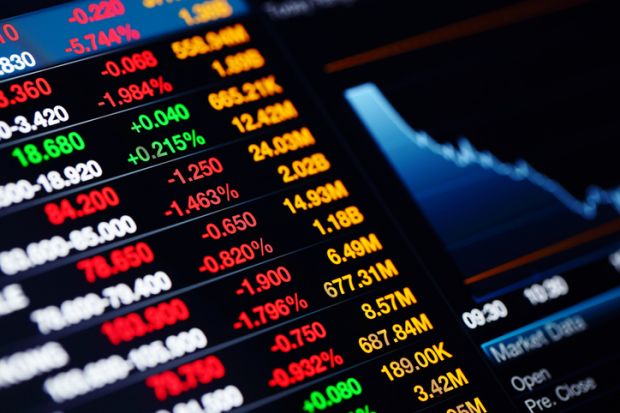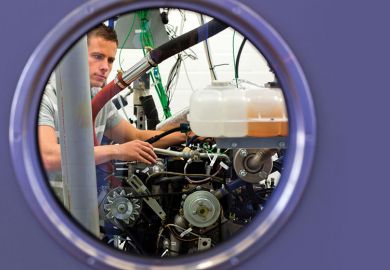Australia’s high-ranking universities wield 30 per cent more economic clout than the UK grouping of research intensives that includes world-renowned institutions such as Oxford, Cambridge and the London School of Economics, a study suggests.
An analysis has found that Australia’s Group of Eight network injected A$66.4 billion (£37.9 billion) into the country’s economy in 2016, equating to about £4.7 billion per institution. This compares with the £86.8 billion delivered by the Russell Group in 2015-16, or £3.6 billion for each of its 24 members, according to a study last year by the same researchers using the same methodology.
“The Go8 is an intense economic driver, even compared to the Russell Group, which is one of the most pre-eminent in the world,” said group chairman Ian Jacobs, vice-chancellor of the University of New South Wales.
Professor Jacobs, a former vice-president of the University of Manchester – a Russell Group member – said that it would be unwise to “read too much” into the comparison. “We have many more international students per institution, which helps drive our research contribution, and there are other differences,” he added. “But the Go8 is perhaps more impressive than we would have thought.”
Gavan Conlon, leader of the education and markets team at London Economics, who co-authored both reports, said that Australia benefited from “natural” advantages such as a relatively closed economy – partly because of its geographical isolation – that meant expenditure in universities ended up “churning through the economy more times”.
Go8 universities also benefited from their larger size. Commencing student cohorts in the Go8 averaged almost 18,000, compared with about 11,000 in the Russell Group.
On the other side of the ledger, the UK universities profited from a less conservative methodology for calculating the present value of benefits realised long into the future – for example, the extra earnings in 40 years’ time from a degree awarded this year.
UK analysis discounts the value by 3.5 per cent a year, compared with 7 per cent in Australia. The Russell Group analysis found that teaching and learning activities generated an extra £20.7 billion – through higher wages for students and tax receipts for the government – compared with A$4.9 billion from the Go8.
Dr Conlon said that if the 3.5 per cent discount rate had been applied, this contribution would have risen to A$17.5 billion. But even using the more generous methodology, teaching and learning would have contributed just 22 per cent of the Go8’s economic impact.
The analysis found more than one-third of the Go8’s economic stimulus came through research, which contributed A$24.5 billion. The direct, indirect and “induced” impacts of university expenditure accounted for another A$19 billion, with international students contributing A$18 billion through their spending and its effects in the wider economy.
Dr Conlon said that he had been surprised by the spillover effect of Go8 research. His team estimated a “weighted average spillover multiplier” of 9.76 – meaning that for every dollar invested in Go8 research, an economic output of A$9.76 was generated across the economy – compared to 5.5 for Russell Group research.
While many individual universities have commissioned studies of their economic outputs, Dr Conlon said that most had simply considered the impacts of their expenditure. He said that more sophisticated analyses, which included the economic spin-offs from the major activities of research and teaching, had arisen in the past five years.
Register to continue
Why register?
- Registration is free and only takes a moment
- Once registered, you can read 3 articles a month
- Sign up for our newsletter
Subscribe
Or subscribe for unlimited access to:
- Unlimited access to news, views, insights & reviews
- Digital editions
- Digital access to THE’s university and college rankings analysis
Already registered or a current subscriber?









